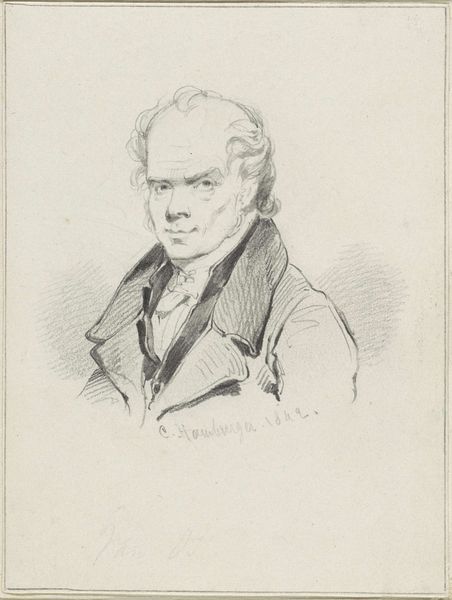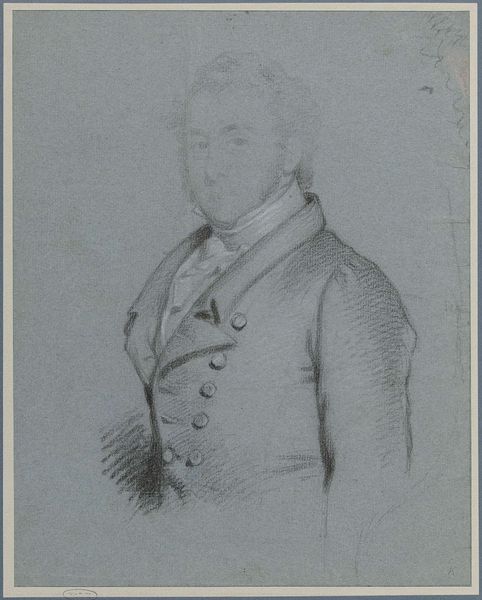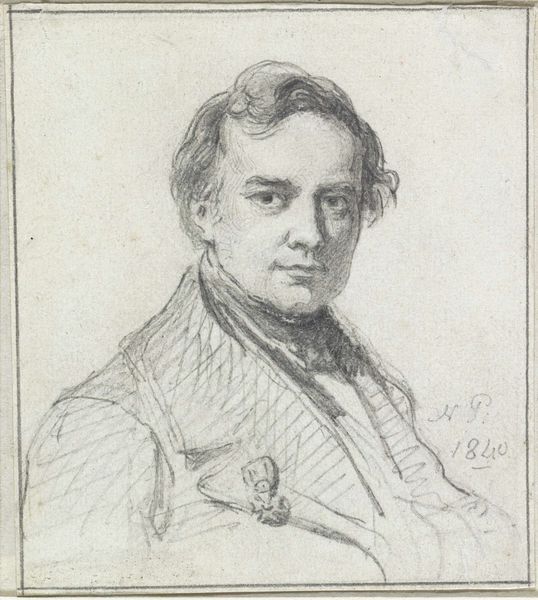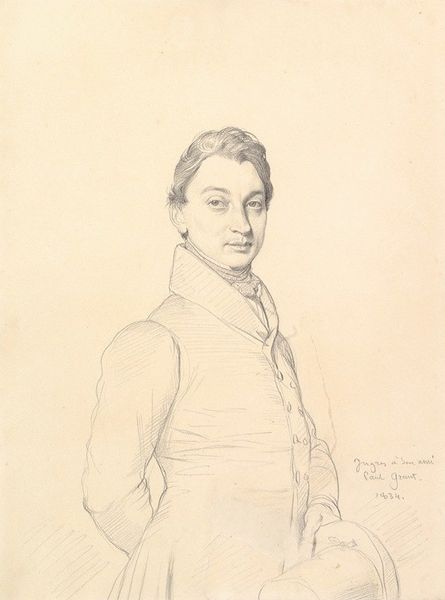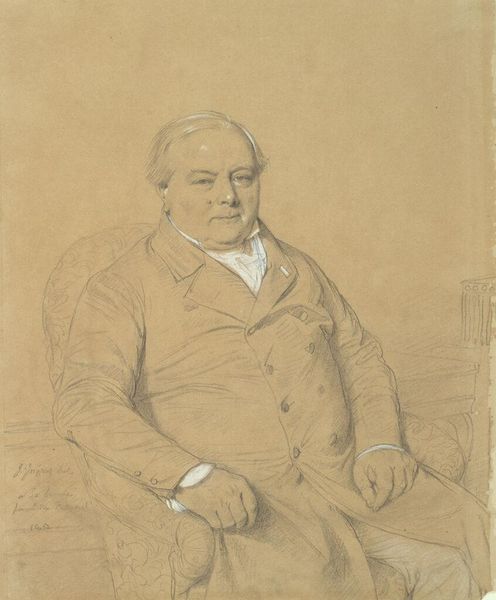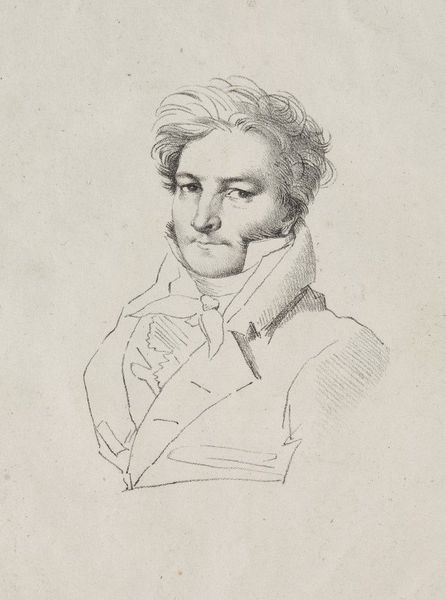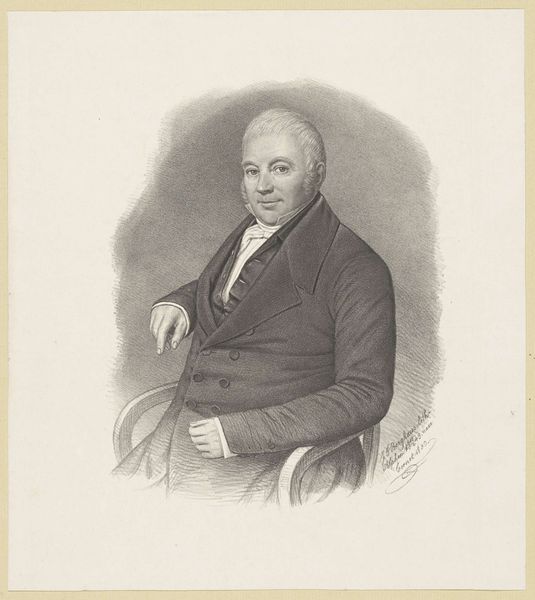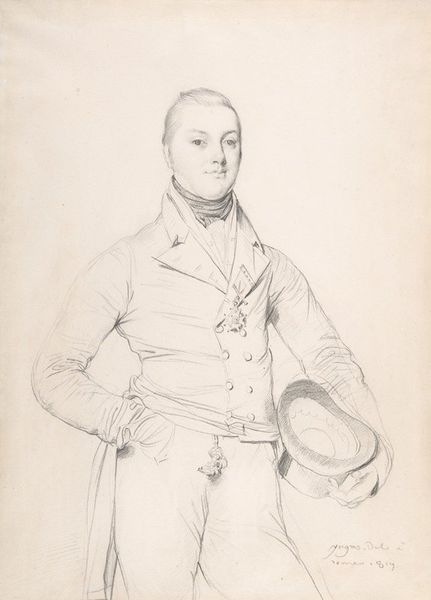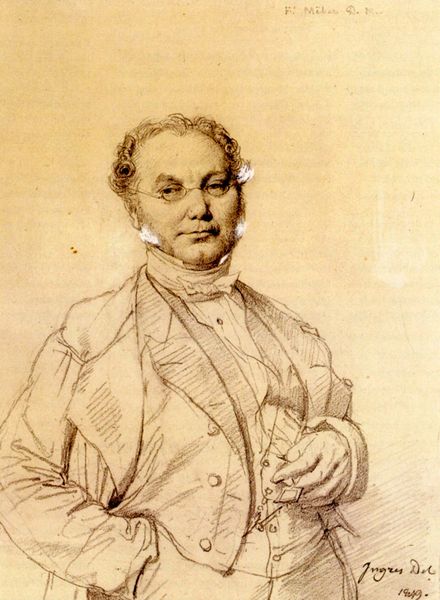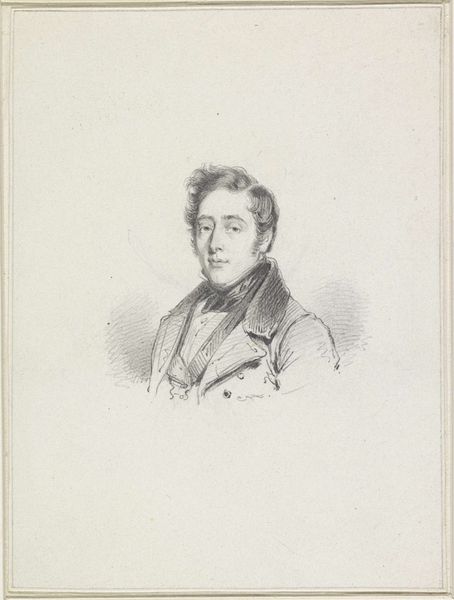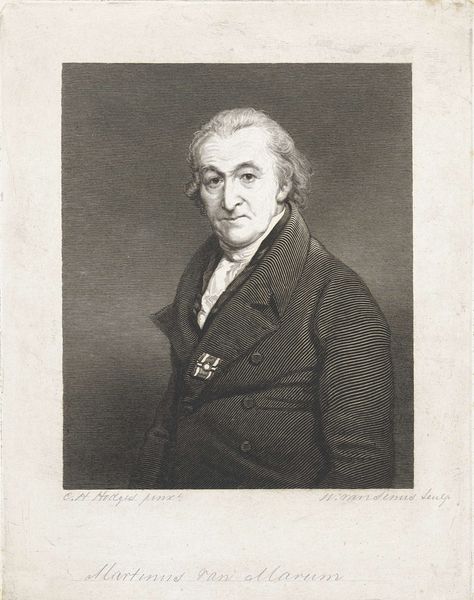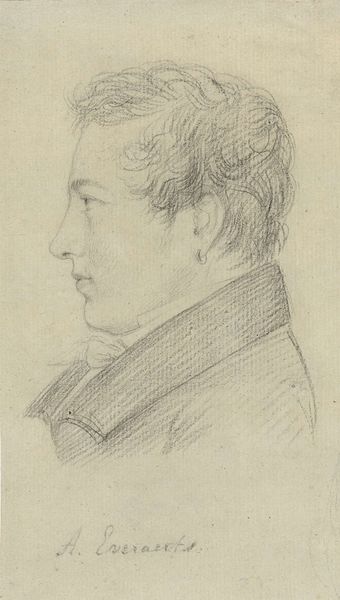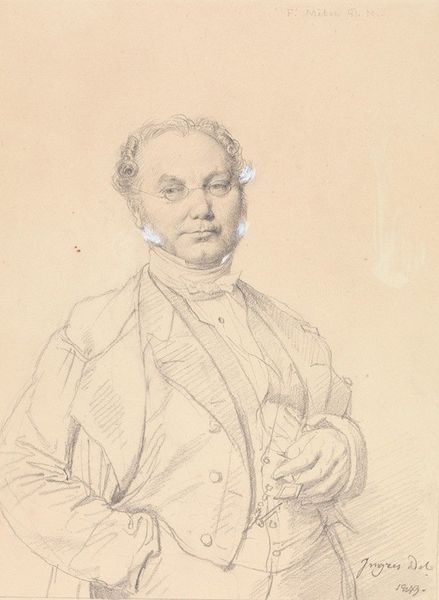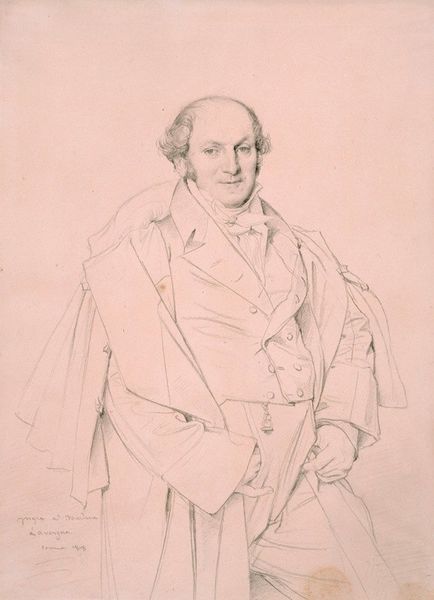
drawing, pencil
portrait
pencil drawn
drawing
pencil sketch
pencil drawing
romanticism
pencil
portrait drawing
academic-art
realism
Copyright: Public Domain: Artvee
Editor: So, here we have Ingres’ pencil drawing, Armand Bertin, from 1842. It's quite a striking portrait. There’s a definite sense of power emanating from the sitter. What do you see in this piece? Curator: Indeed. What strikes me immediately is the calculated use of line and form. Note how the flowing lines of his coat soften the banker's…robustness. Observe how Ingres uses this almost serpentine line to suggest Bertin’s control, a subtle visual metaphor of his ability to manage the financial currents of his time. What feelings does the cane evoke in the viewer? Editor: That’s a great point! The cane looks a bit like a scepter. Does the contrast between the hard lines of the waistcoat and the softness of his face communicate anything specific? Curator: It signifies control and sensitivity. Bertin embodies a shift occurring at that time – a banker now also a man of apparent intellectual standing, hinted at by his refined, albeit fleshy, features. It reminds me of Roman portrait busts meant to convey authority through meticulous, even unforgiving, realism. He’s got the hat in his hand, so does that imply humility? Or something else? Editor: That’s a perspective I hadn't considered. The realism mixed with almost idealized control is compelling. I’m thinking now about how artists represent people of power, both then and now. Curator: Yes, reflecting on those continuities is very useful for analyzing today’s visual culture.
Comments
No comments
Be the first to comment and join the conversation on the ultimate creative platform.
